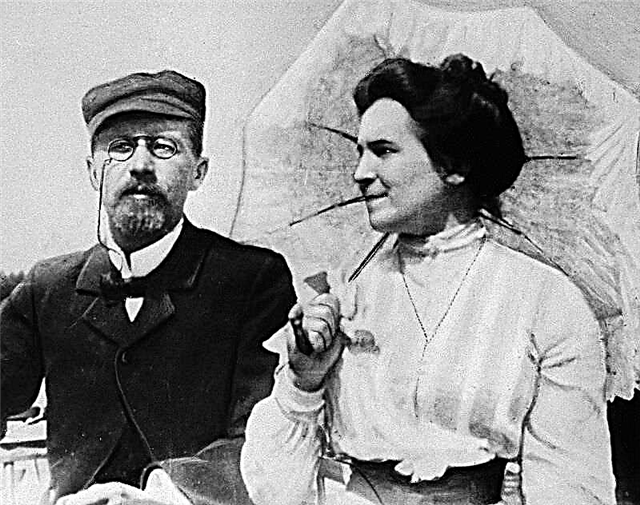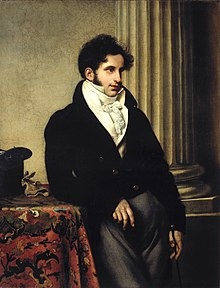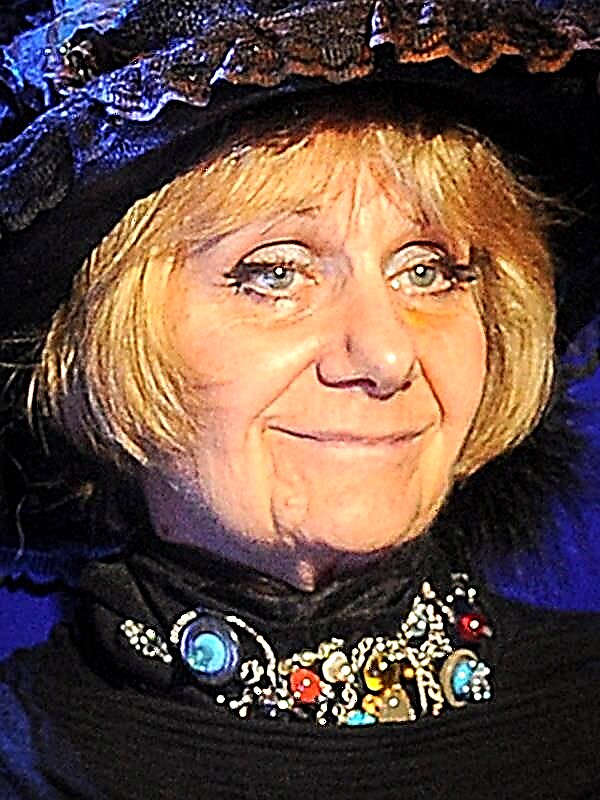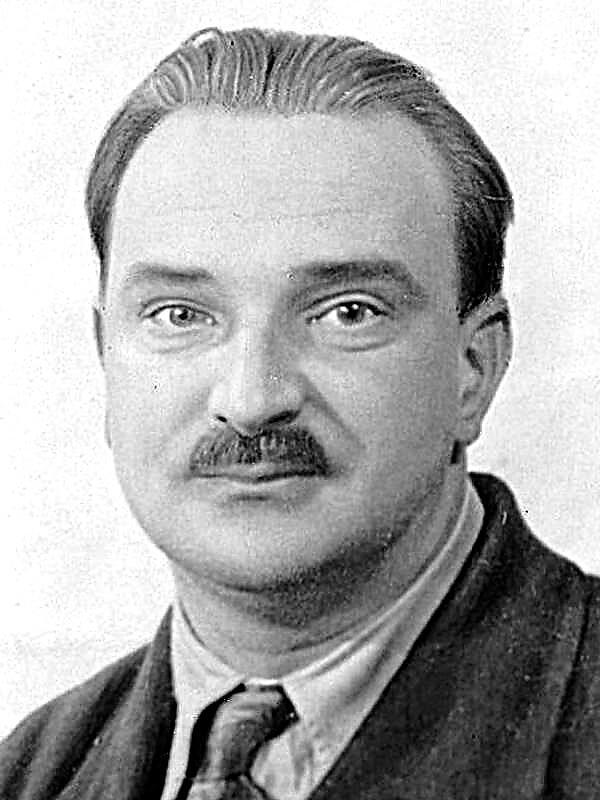All mysterious stories sometimes begin with a random conversation, an accidentally abandoned word, a fleeting meeting. Where could such a meeting be, if not at the ball? Princess Mimi had long disliked Baroness Dowertal. The princess was already thirty. She still could not get married, but continued to attend balls. She perfectly learned to slander, induce suspicions, intrigue and, while remaining invisible, acquire some kind of power over others. Baroness Dauertal, by contrast, was married for the second time. Her first husband died, and the second, a husky old baron, aroused pity and suspicion in everyone that his wife was only hiding behind him. However, the baron himself certainly believed his wife and did not doubt her affection. And no matter how ladies talked in the light of Eliza Dauertal, they still could not figure out who she had an affair with. And the light left her alone ... But not a princess. Mimi thought that the first husband of the Baroness until her marriage was a fan of her, Princess. But here came the lovebird Eliza and bewitched him. It was impossible to forgive ...
So, once, during a ball, after one of the dances, the princess briefly asked the baroness who she was dancing with. The Baroness replied that her partner had once served with her brother. The princess's question put her in a quandary. Granitsky, the young man with whom she was dancing, was indeed a friend of her brother, or rather, the brother of her husband. And brother now lived in her house. And Granitsky - with her brother. He did not know anyone in the city; he constantly traveled with the Baroness. Looking at this handsome young man with thick black whiskers, who so often accompanied the baroness, it was easy to think that they were connected by some kind of feeling.
In fact, Granitsky was long and hopelessly in love with Countess Lydia of Rifey. He knew and fell in love with her as a girl, she reciprocated. But, as always happens, family calculations and material considerations intervened. Mother took Lydia to France and married the Earl of Rifey. Having met again in St. Petersburg, the lovers remembered the past and decided to deceive the light. Now, during the ball, Lydia managed to warn Granitsky that he did not invite her to dance more than once.
That is why, when the Baroness tracked him down to introduce him to the dancer, Granitsky readily agreed. The Baroness wanted to introduce him to Princess Mimi in order to remove her suspicion and earn gratitude. The calculation was not justified: the princess acted unhealthy and rejected the offer of Granitsky. The embarrassed baroness had to retire. The princess really wanted to show that she did not want to dance only with Granitsky. Unfortunately, no one else invited her all evening. She returned home with plans for brutal revenge. Do not rush to condemn the princess for them: condemn the best depraved morals of society! The society that inspires the girl that her only goal is to marry, and if she cannot do this, despises her and taunts her.
The next day, the princess woke up in a bad mood. At breakfast, she heard a lot of taunts from her mother, the old princess, complaining about the fact that her daughter did not get married, but continued to go to the balls and that her mother no longer had the strength to contain Princess Mimi. And even before that, she almost quarreled with her younger sister Maria, who defended the baroness. The quarrel promised to erupt in earnest, but guests and friends began to gather in the house. Little by little, the conversation turned to the Baroness and Granitsky. The guests agreed that the baron and baroness together look strange, and Eliza behaves obscene, dragging Granitsky along with her everywhere. Secular rumor has already tied together the names of Eliza and Granitsky, considering them lovers. Any action, any word only confirmed suspicion.
Once the princess and baroness met in the house of their mutual acquaintances. There was also Granitsky, who all day unsuccessfully searched the Countess of Rifey. Soon, Granitsky said that he had to go to the opera, and disappeared. The princess immediately decided that it was she who upset the Baroness’s next meeting with her lover. But then a servant appeared and reported that the baroness’s carriage had been filed. Princess Mimi suspected something, but even herself did not know what it was. She decided that she should definitely go with the baroness, and asked for a carriage with her under the pretext of migraine. And then Mimi walks around the courtyard, in a salop, blown from all sides by the wind, which blinds and blows out the lights. She is supported by two footmen, helping to climb the step of the carriage. At this time, a male hand protrudes from the carriage to help her sit down. Mimi rushed back and screamed - almost for joy! She finally found the evidence! She whispered to her sister Maria in a loud whisper that Granitsky was waiting for the Baroness in the carriage. The Baroness, who appeared after the princess, could not understand what had happened. At that moment, the door opened - and ... the baron entered. Yes, he was expecting his wife in a carriage. The cry of Princess Mimi, which he mistook for Eliza, forced him to leave the carriage.
If you think that everything was clarified and Eliza was justified in the eyes of society, then you do not know him. For society there is nothing nicer to blame some woman for treason, to believe in yourself and to persecute her. Princess Mimi possessed some kind of magnetism - therefore, those present did not believe their eyes. It was easier for them to think that this was a mirage, a diabolical obsession, than that the princess had been deceived by mistaking the old baron for Granitsky. Then an unclear, essentially ridiculous thought was born that the baron played the role of godfather here. Gradually, everyone became convinced of the truth of this assumption. So much so that the young baron, brother-in-law of Eliza and the brother of the old baron, a friend of Granitsky, should already have listened to the instructions from the Marquise de Kreki, his aunt. She found this acquaintance strange, reprehensible, and Granitsky himself, who never served anywhere, suspicious. She resolutely took the word from her nephew that for the sake of her brother he would expel Granitsky from home. She informed him of the cunning intrigue initiated by Granitsky with the Baroness.
At the same time that the Marquis was reporting her nephew, Gabrielle Granitsky met with Lydia in a small room behind a brilliant store. Lydia came here for the last time to report the news: her husband had a second blow, and the doctors declared him hopeless. A loom of freedom was opening before the lovers, a ghost of happiness seemed to be hovering over them. But the countess was tormented that for the sake of this happiness she had to step over the death of her friend. And she swore every minute concern for her husband, the fulfillment of her conjugal duty, to atone for her deception and future happiness ...
Returning home, the young Baron Dowertal was looking forward to Granitsky. He was as if in a dream and felt that he had to do something. He worried about his brother, whom he loved and respected, felt his resentment as his own. The desire to show off in front of his comrades, to show that he is no longer a child, was mixed in with this. He is used to the fact that murder smoothes out all insults and all crimes. He did not guess to ask the court of the highest, true, independent of people's opinions. And how could he ask if the upbringing had forgotten to tell him about this court, but life did not teach him to ask at all. Even the language of the trial was incomprehensible to the baron ... Is it any wonder that the appearance of Granitsky led to an immediate quarrel, the quarrel to an insult ... And now, recent friends are shooting ... Granitsky is still trying to find out the reason for the unexpected anger of his comrade. The error turned out quite ... But none of them had the strength to refuse a duel. Opponents do not want each other's death, but are forced to pretend that they are fighting seriously ... "We will try to scratch each other," the duelists decided and parted. And indeed: Granitsky’s bullet scratched the baron’s hand, while Granitsky fell dead.
Having learned about the duel, the high-moral ladies immediately understood everything. All doubts were rejected, the perpetrators found.
False accusations put the Baroness in bed - she never rose again. The young baron and his two seconds were exiled to a duel. The Countess of Rifey remained a widow.
So tell me after that what vices are persecuting society if both the guilty and the innocent die from it. Why are people, all calling, all whose pleasure to sow disaster, to arouse in the high souls aversion to humanity.
The death of Baroness Dauertal in society was learned from a young man who, despite the presence of Princess Mimi, accused the secular ladies of this crime. Princess Mimi objected to the daring: “It’s not people who kill, but lawless passions.”












